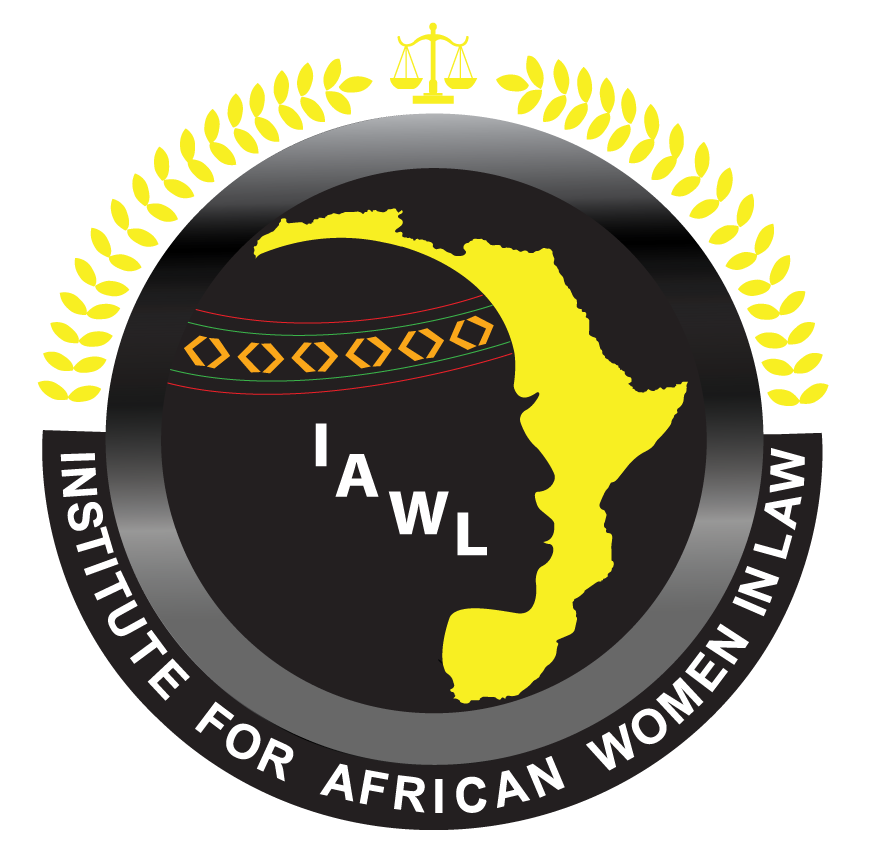Why I use legal narratives to center African women in law.
- IAWL

- Jan 30, 2022
- 4 min read
By: J. Jarpa Dawuni, Esq., Ph.D.
In 1994, I had an encounter with a woman who would influence my life and thinking in the journey I embarked on as a lawyer. I came across an Ebony magazine that had the profiles of “30 Black lawyers under 30.” I was drawn to the picture of Dr. Nannette Graham whose profile described her as:

“Nanette Graham Ph.D., 26, assistant professor of criminology of criminal justice and criminology, University of Nebraska at Omaha; member, Nebraska Adolescent Health Advisory Council; member, consulting board, University of South Carolina Southern Region Violence and Substance Prevention Center; consultant, Mayor’s Office “Omaha Community Partnership” for prevention of youth violence and drug use.” I decided I wanted to be just like her. I cut out the picture and kept it. Years later, I laminated to prevent damage, and 28 years later, I still have that picture. Despite many google searches, I am yet to meet Dr. Nanette Graham, and I am still searching.

During my national service in Cape Coast in 1994-1995, I met another lawyer, this time, a Ghanaian–Adeline Araba Ainooson (née Aidoo). I admired her grace, beauty and “legal wig.”
I asked Araba to send me a picture of her call to the bar-- to keep me motivated. She did, and wrote a note behind it that ended with '.......I hope it inspires you." And it sure did! I was further inspired to read law, and 28 years later, Adeline and I are still the best of friends and my “big sister.”

These are just two examples of many encounters I had with women who inspired me to pursue a law degree. Fast forward to 2001, I was called to the Ghana Bar. Then in 2004, I obtained my Masters in International Development at Ohio University, and in 2010 my doctorate in Political Science from Georgia State University. Initially I appeared to be lost—friends and family asked what do you really want to do--law? development work or politics? A common thread that run through all my degrees was my passion for women and children’s rights. I decided to weave a mosaic from my interdisciplinary training in law, development and politics. I chose academia—a profession that has allowed me to engage in research and to use my scholarship to promote activism for gender equity in law and access to justice.
How have I attempted to do that?
First, through scholarly research. I combined my legal training with my social science training in political science to develop a research agenda that focuses on women in law across Africa. This led me to pioneer research on women judges in Africa. The first book to be ever written on women judges is my co-edited book Gender and the Judiciary in Africa: From Obscurity to Parity? (Routledge, 2016). My quest to understand the lived experiences of African women in law, through their own voices, led to my second book, International Courts and the African Woman Judge: Unveiled Narratives (Routledge, 2018). As the editor of the World Bank project on gender and the judiciary, I coordinated the production of Gender, Judging and the Courts in Africa: Selected Cases (Routledge, 2022). I have also written several book chapters, articles and creative works on this topic of women in law.
Second, through scholar-activism. I combined my love for research, with my quest for empowerment, as a scholar-activist to create a platform that would promote the voices of African women in law. The Institute for African Women in Law, a non-profit organization, was born in 2016. Through this organization, I am working to center the experiences, and contributions, of African women in law. My goal is to move from oral tradition of storytelling to the written tradition of documentation to historicize women in law. My coordinated approach using legal narratives as a social science tool to document the lived experiences of women in law through multiple channels such as the Pioneer African Women in Law, the Amandla! African Women in Law Speak, the Quotable African Women in Law, and the video series the African Women in Law Legacy Project.
In the foreword to my book the International Courts and the African Woman Judge: Unveiled Narratives, Judge Gabrielle Kirk McDonald, former Judge/President, International Criminal Tribunal for the Former Yugoslavia (ICTY) wrote;
"Legal narratives are an important tool in telling stories—especially those that would otherwise not get told. Storytelling is a salient part of the African and African-American experience.”
The voices and contributions of African Women have for centuries been silenced, erased, and marginalized across domestic and international spheres. A combination of culture and imposed western notions of the public and private divide has led to a socialization of African women to be modest in highlighting their own experiences and contributions. I will confess that I still struggle with getting over that socialization. However, until I get to a full state of liberatory self-positioning that does not sacrifice humility for self-centering, I will continue to use legal narratives to tell the stories of African women in law.
Legal narratives do not only center the experiences of African women, but they also mentor and encourage the next generation of women in law—the girls who will see these images and be inspired, just like I was inspired by the image of Dr. Nanette Graham in an Ebony magazine.
